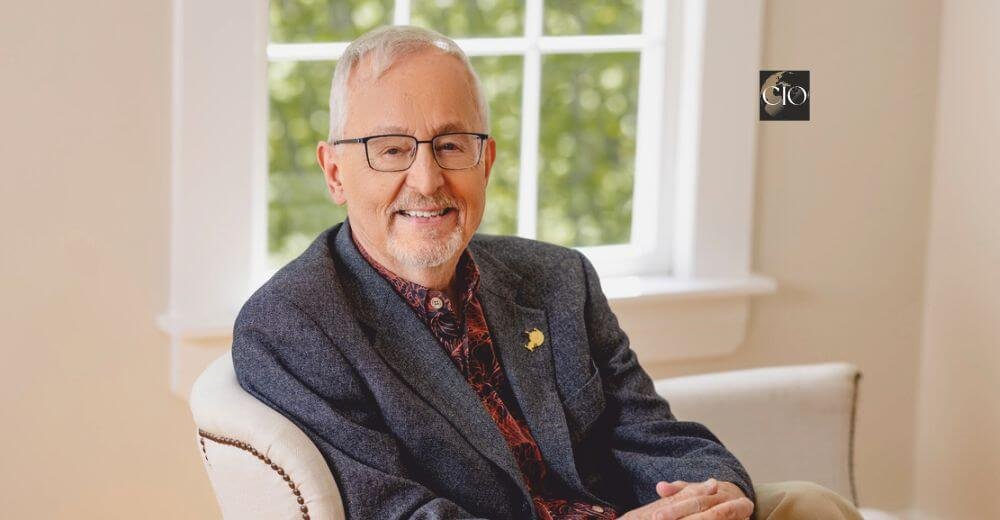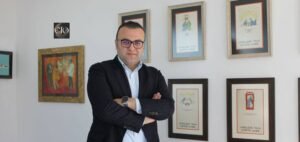The world is changing fast: technology, society, how we live and work. Education can’t just follow along; it needs to lead. In 2025, some educators are doing exactly that, blending fresh research with a focus on people and a global perspective. Dr. Richard C. Larson stands out as a prime example of this new wave. His career shows how curiosity, kindness, and thinking in systems can reshape not just classrooms, but entire communities.
Known to many as “Dr. Queue” for his early work in queueing theory and systems modeling, Dr. Richard C. Larson has worn many hats: teacher, researcher, entrepreneur, and advocate. His impact touches everything from public safety and healthcare to urban infrastructure and, above all, education. Now a professor at MIT, he’s the kind of educator who goes far beyond textbooks and lectures.
This is the story of a man whose work has helped millions around the world, from improving emergency response in New York City to creating science videos in Tanzania, advising organizations like the United Nations, and guiding students to think clearly. It’s a story about vision, hard work, and believing in the power of knowledge to make a difference.
Let’s uncover the transformative power of education through the life of Dr. Larson!
The Birth of a Systems Thinker
Dr. Larson’s journey began with a small but profound decision. At age five, he chose not to attend kindergarten, insisting he was “only a kid once.” This moment of youthful agency foreshadowed a lifetime of independent thought and self-directed learning. Supported by his parents, a civil engineer father and a schoolteacher mother, his early years were a blend of intellectual freedom, outdoor exploration, and creative curiosity.
Born in Bayside, Queens, and raised in the quiet landscapes of Pennsylvania and later in suburban Massachusetts, Dr. Larson developed a keen interest in the mechanics of how things worked. From building radios to dissecting the flow of water in nearby creeks, he saw the world not as a collection of objects but as interrelated systems. This formative lens shaped his academic path and life philosophy.
As a student at MIT, Dr. Richard C. Larson brought that lens into full focus. He immersed himself in engineering, but his true talent lay in pattern recognition and abstraction. He sought not only to solve problems but to understand how entire systems functioned. He joined the Phi Beta Epsilon fraternity, which became an emotional anchor during the grueling MIT years. The friendships, support, and camaraderie he found there reinforced the human element of an otherwise technical environment.
Innovating for Impact
After earning his PhD in Electrical Engineering with a specialization in operations research, Dr. Larson made a pivotal career choice. Instead of pursuing a narrow academic track, he opted for a path that merged research, application, and societal benefit. His early work with the President’s Commission on Law Enforcement involved building mathematical models to enhance emergency response systems, a novel idea at the time. These models laid the groundwork for more efficient, data-driven public safety operations.
He didn’t stop there. With a rare mix of academic rigor and entrepreneurial initiative, he launched Public Systems Evaluation (PSE), a nonprofit dedicated to improving urban systems through applied research. This evolved into two successful consulting firms, ENFORTH Corp and Queues-ENFORTH-Development (QED), which helped redesign dispatch, telecommunications, and emergency response systems in major cities including New York.
His work revolutionized the ways cities respond to 911 calls, allocate emergency vehicles, and staff public services. Dr. Richard C. Larson showed that even a few seconds saved in response time could translate into lives saved, an insight that has had ripple effects across the globe. These experiences reinforced his belief that theory must serve practice and vice versa. He remained anchored at MIT, where he brought real-world challenges into the classroom and inspired students to see research as a force for good.
BLOSSOMS and MIT LINC
Dr. Larson’s transition into global education advocacy came from the same systems-oriented thinking that defined his earlier work. In developing nations, he saw educational bottlenecks similar to those in emergency services: limited resources, high demand, and inefficiencies in delivery. His response was to design systems that could scale quality education without sacrificing local engagement.
BLOSSOMS, Blended Learning Open Source Science or Math Studies, was born from this vision. The initiative produces engaging video modules that support and enrich classroom learning. What makes BLOSSOMS different from other digital platforms is its design: videos are built to pause, allowing teachers and students to interact, discuss, and contextualize content.
Rather than replacing teachers, BLOSSOMS empowers them. It creates a hybrid learning environment where students are actively involved, not passively consuming information. With contributions from educators across the world, the library includes over 100 modules in multiple languages and has reached students from Jordan to Tanzania. In regions where educational access is uneven, BLOSSOMS serves as both bridge and beacon.
Complementing this is MIT LINC, the Learning International Networks Consortium, a global forum that brings together educators, technologists, and leaders to reimagine higher education, particularly in emerging economies. Under Dr. Larson’s leadership, LINC has hosted international conferences, sponsored collaborative research, and fostered partnerships aimed at creating sustainable, context-sensitive education systems.
Both BLOSSOMS and LINC reflect Dr. Richard C. Larson’s belief in building infrastructure for learning, not just content. His wife, Liz, was deeply involved in these projects, serving as both partner and catalyst. Her legacy continues in every student whose path is expanded through these initiatives.
Adapting Through Crisis
When the COVID-19 pandemic disrupted the world, educators faced an unprecedented challenge. In-person learning ground to a halt. Classrooms emptied. Uncertainty reigned. For many, this meant a pause. For Dr. Larson, it became an inflection point.
Grieving the recent loss of his beloved wife and confined by lockdowns, he turned to writing. He originally planned to revisit his work in queueing theory, but personal reflection led him elsewhere, toward the broader application of systems thinking in daily life. That project evolved into MODEL THINKING for Everyday Life: How to Make Smarter Decisions, published in 2023.
The book translates decades of experience in modeling and decision science into accessible frameworks for individuals and professionals. Rather than focusing on technical equations, it illustrates how systems thinking can inform everyday decisions, from managing time to understanding health risk, from planning travel to evaluating investments. It’s a guide for navigating complexity with clarity and logic.
The success of the book highlighted an often-overlooked reality: the same principles that govern large systems, such as feedback loops, bottlenecks, and optimization, also govern personal and societal behavior. Dr. Richard C. Larson bridged that gap with empathy and insight, showing that the tools of the scholar can also serve the citizen.
Teaching Beyond the Classroom
Dr. Larson’s true superpower may be his ability to mentor. Over five decades at MIT, he has taught thousands of students, many of whom have gone on to become influential leaders, entrepreneurs, educators, and policy experts. He challenges students not just to learn formulas but to think deeply about structure, intent, and consequence.
His courses blend analytics with ethics, theory with humanity. He invites students to model real-world phenomena, such as transportation delays, hospital operations, or voting patterns, not to build abstract simulations but to uncover actionable insights. Students learn to frame problems holistically and to appreciate both the elegance and limitations of mathematics.
Beyond the classroom, Dr. Richard C. Larson is a trusted advisor, helping young professionals find their voice and purpose. He encourages interdisciplinary exploration, often urging students to study economics, psychology, or philosophy alongside engineering. His mentorship is grounded not in authority but in partnership, a co-discovery process shaped by mutual respect and curiosity.
A Human Lens on Genius
Despite his many achievements, Dr. Larson remains grounded and introspective. He is quick to acknowledge his own limitations: a tendency toward impatience, moments of procrastination, and the lifelong struggle to balance work with personal priorities. But it is precisely this honesty that makes him relatable.
At the core of his work lies a deep respect for people — their time, their questions, their potential. Whether designing systems to improve urban services or writing about decision-making, he keeps the individual in focus. He believes that education is not about transferring data but about nurturing capacity, the ability to learn, adapt, and act with intention.
His lifelong love of music, from early rock & roll to rhythm-and-blues, continues to influence his thinking. As a teenager, he built a soundproof studio in his basement and spent countless hours immersed in sound. Music, for him, was more than a hobby; it was a training ground in rhythm, pattern, and flow, skills that would later shape his mathematical intuition.
A Lifetime of Influence
Over the course of his extraordinary career, Dr. Richard C. Larson has received numerous honors. These accolades reflect not only technical brilliance but a deep, consistent impact on society. His groundbreaking 1972 book Urban Police Patrol Analysis earned the Lanchester Prize for its contribution to operations research. He was elected to the National Academy of Engineering in 1993 and has since served as President of both ORSA and INFORMS.
Other major recognitions include:
- Best Paper Awards in leading journals such as Value in Health and Monthly Labor Review
- The Daniel Berg Lifetime Achievement Medal (2017, New Delhi, India)
- The Albert Nelson Marquis Lifetime Achievement Award (2025)
He has advised high-impact organizations ranging from the World Bank and American Airlines to the United Nations and the U.S. Department of Justice. Media coverage of his work has appeared on CNN, NPR, ABC’s 20/20, and in The New York Times.
But for Dr. Richard C. Larson, the true measure of legacy lies not in accolades but in lives changed: students inspired, systems improved, and communities uplifted.
Wisdom for Future Leaders
In 2025 and beyond, the need for systems thinkers and humanistic educators is greater than ever. As the world struggles with automation, inequality, climate change, and geopolitical instability, it is not just knowledge but model thinking, the ability to reason, adapt, and innovate, that will guide sustainable solutions.
Dr. Larson continues to teach and write, fueled by the belief that knowledge must serve people. His philosophy is simple yet powerful: live your values, pursue your passions, and build capacity in others. For him, education is not a finite transaction; it is a lifelong dialogue between mind and world.
A Life in Full
Each morning, Dr. Richard C. Larson begins his day with a quiet moment of gratitude, a glance at the sky, a nod to the journey. He has lived through personal loss, global change, and academic reinvention. Yet he remains driven not by ego or accolades but by purpose.
His life’s work is a testament to what education can become when it is led by vision and anchored in humanity. From the streets of New York to the classrooms of Pakistan, from the pages of a textbook to the mind of a student, his impact endures, not just in models but in mindsets.
Dr. Richard C. Larson teaches us that to truly educate is not to transmit but to transform, to take the complex, make it comprehensible, and return it to the world as a tool for good.




